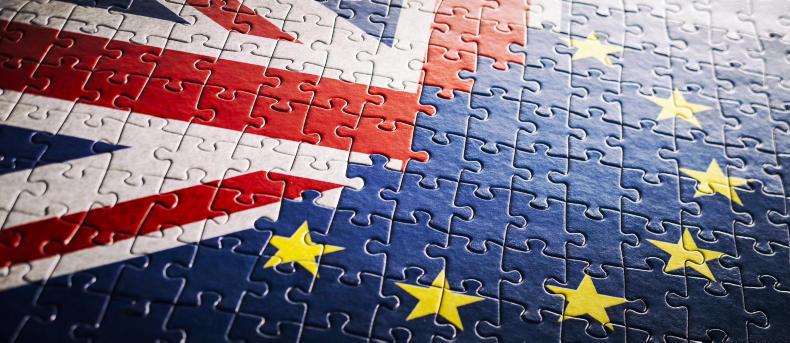As reports emerge of a deal that would keep the same EU regulations for the entire island of Ireland, the focus will turn to how this plays out in an east-west scenario for trade between Northern Ireland and the rest of the UK, and between the Republic of Ireland and Britain.
DUP leader Arlene Foster strongly rejected any separation between Northern Ireland and Britain in a statement this Monday, saying: “We will not accept any form of regulatory divergence which separates Northern Ireland economically or politically from the rest of the United Kingdom.”
We will not accept any form of regulatory divergence which separates Northern Ireland economically or politically from the rest of the United Kingdom. pic.twitter.com/uCBVdfVQTJ
— Arlene Foster (@DUPleader) December 4, 2017
Foster, who was Northern Ireland first minister before the executive broke down, introduced a definition of Brexit outside the hard and soft varieties that makes much sense from a trade perspective. She used the phrase “sensible Brexit”, which suggests that any border in the Irish Sea doesn’t work for agricultural trade whether it is from Northern Ireland or the Republic of Ireland.
One third of NI’s milk
A deal that takes care of north-south trade is great for farmers exporting pigs north for processing in the Karro factory in Cookstown or cattle coming out of marts in the west of Ireland for further feeding and processing in the north.
It works brilliantly for the 400,000-plus lambs – almost half of Northern Ireland’s production – that go south for processing and onward trade to Britain and the continent. This will preserve the trade in milk that is collected in Northern Ireland farms for creameries in the south. This is over a third of all milk that is produced in the North.
So far so good, but a border in the Irish Sea is an equally big a problem for Republic of Ireland and Northern Ireland agriculture exports to Britain. With over 250,000t of Irish beef and 80,000t of cheddar, two-thirds of total Irish exports going to Britain, protecting this business is vital for Irish farmers. Similarly, two-thirds of Northern Ireland’s agri produce sales are to the rest of the UK.
While no trade border on the island of Ireland is welcome and a good first step, the great challenge now is to keep regulatory alignment between the rest of the UK and the EU. That way, there will be no need for a trade border anywhere.
Migration and labour
This doesn’t deal with the issue of migration and access to EU labour for the UK food industry and farms for harvesting. That can be dealt with separately and isn’t as vital to trade.
If east-west trade regulation can be sorted in the way the north-south appears to have been, then it will be a “sensible Brexit”.
If it is “continued regulatory alignment”, as it is being suggested is applied to Ireland, it is just one more step to extend that to the rest of the UK.
In that process, not only is the trade border on the island of Ireland removed, it is also removed everywhere else, with no border in the Irish Sea.
No hard border for farmers in draft Brexit border agreement
Irish Government has ‘no desire’ to delay Brexit






 This is a subscriber-only article
This is a subscriber-only article










SHARING OPTIONS: